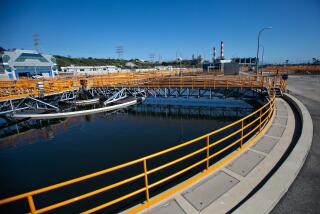What goes down the drain may come back up on a repair bill
Question: We had a plumbing repair that our landlord wants us to pay for. I reviewed our lease contract, and it says that the landlord is responsible for maintaining and repairing the water lines. Any insight into this?
Answer: Although I can’t see into your pipes, I can offer some insight into plumbing issues. Basically, tenants must use plumbing fixtures properly and as intended.
If the plumber had to be called out for a problem caused by you or a guest, the tab is on you. For example, if an item not suited for flushing down the toilet was flushed, the bill goes to you.
Ditto for garbage disposals. Some residents toss an excessive amount of peelings and scraps into the kitchen garbage disposal and forget to run the water, which can cause the machine to shut down on newer models. If the disposal has to be cleared and reset, the repair bill may be handed to you.
Another often-disputed problem is clogged drain pipes. Common sense should dictate what goes down the drain. Plumbers have found bottle caps in drains, requiring a trip to the clean-out area outside the unit. The clean-out often requires heavier equipment and may not be easily accessed. This type of clean-out is particularly pricey, which adds to the bottom line.
My advice? Ask the landlord for any written instructions of the care and use of the property, especially for plumbing. Some forbid the use of any liquid drain cleaner, because it can corrode the pipes, especially in older properties. Others disallow the use of toilet tank inserts, because they corrode the water seals.
Old pipes don’t signal danger
Question: The plumber says the pipes are very old. Don’t water and gas pipes have to be inspected periodically for safety? Do we have to pay for leaks and repairs?
Answer: Gas lines and water pipes are usually left unchecked unless a problem surfaces. Unless the problem was caused by your improper use, you are not responsible for the repair costs. Gas pipes, or lines, are only checked if the smell of gas is present. Fortunately, the odiferous scent added to natural gas makes trouble easy to discover. The gas company can be called directly and someone will come out at no charge.
Though there is no set inspection law for gas lines in most areas, some laws have changed since the Northridge earthquake in 1994, requiring flexible connections to all gas appliances, including water heaters. Water heaters have to be properly strapped into place as well. Some cities have stricter laws than others.
If you have any specific concerns, details can often be found by contacting your local building and safety department.
Water pipes are separate from gas lines and are rarely inspected unless there is evidence of water leakage or mold. Older water lines can be troublesome, but they are rarely dangerous. Water seeps downward, so downstairs dwellers should be on the lookout for water dripping from light fixtures or where walls and ceilings join. If you do see water anywhere near an electrical source, call the landlord immediately and do not touch anything near the source. Water leaks can also run under floors, which then feel soft when you walk.
If you notice water dripping from a pipe connection, also notify your landlord immediately. Pinhole leaks can sometimes cause damage quickly because the water sprays out like a high pressure water gun. Hot water leaks are particularly damaging.
Sewer lines can sometimes get clogged, and when they do, the wastewater backs up.
A sign of sewer backup problems is sludge appearing in the bathtub and toilet at the same time. Otherwise, the most common sewer culprit is tree roots, which are not the tenant’s fault.
Reader comments may be sent to [email protected].
More to Read
Inside the business of entertainment
The Wide Shot brings you news, analysis and insights on everything from streaming wars to production — and what it all means for the future.
You may occasionally receive promotional content from the Los Angeles Times.










